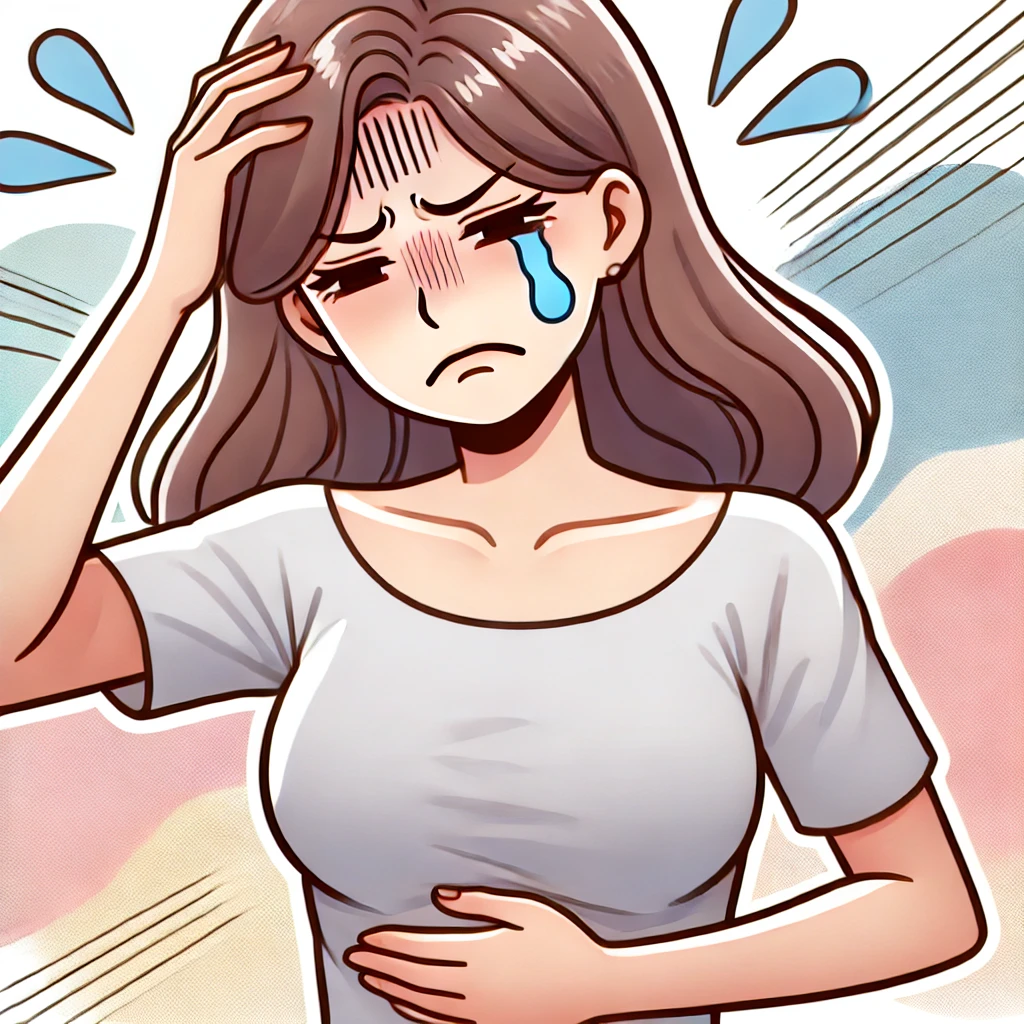
ADHD Girls Support: A Parent’s Framework for Growth and Empowerment
Parents of ADHD girls are in a unique position to support their daughters through life’s many challenges by emphasizing their natural strengths. With a structured approach to empowerment, parents can offer meaningful support that encourages growth and resilience. This is where the ADHD Girls Support Model comes in—a framework designed to help ADHD girls thrive in a world that often overlooks or misinterprets their needs.
This article introduces the ADHD Girls Support Model, an empowerment model centered around five core components: Self-Awareness, Self-Advocacy, Self-Accommodation, Self-Compassion, and Self-Care. This model gives parents a practical roadmap to empower their daughters, fostering confidence, resilience, and self-acceptance from a neurodiversity-affirming perspective.
Why ADHD Girls Need Unique Support
While ADHD affects people of all genders, ADHD symptoms in girls often go unrecognized or are misinterpreted. ADHD in girls typically presents as inattentiveness, emotional sensitivity, or internal restlessness rather than the hyperactivity more commonly associated with ADHD in boys. These subtle signs may lead to delayed diagnoses, missed support opportunities, and academic or social struggles that could have been mitigated with early intervention.
Recognizing the Signs: How ADHD Symptoms Differ in Girls
For ADHD girls, symptoms may include daydreaming, forgetfulness, and emotional sensitivity, with low stress tolerance often adding to daily challenges. Unfortunately, these traits don’t fit the typical “ADHD profile,” so they can be overlooked or dismissed as personality traits or phases. Recognizing these symptoms early and understanding their impact is crucial for parents to provide timely and effective support.
The Importance of Early and Accurate Diagnosis
Many ADHD girls, especially those undiagnosed, learn to mask their symptoms. Often, they may develop coping strategies like perfectionism or intense organization to manage their challenges. However, these efforts can take a toll, leading to low self-esteem, emotional fatigue, and academic issues. An early diagnosis enables parents to offer their daughters effective ADHD support early on, helping them build confidence, resilience, and self-compassion.
The Social and Emotional Challenges for ADHD Girls
ADHD girls often struggle with the social expectations placed upon them, feeling pressured to meet traditional gender norms, like being quiet, organized, and compliant. This pressure can create a cycle of self-criticism and feelings of inadequacy. By acknowledging and addressing these gender-based expectations, parents can alleviate some of this emotional burden, creating an environment where their daughters feel safe to be themselves.
Understanding and Addressing Internalized Shame
Feedback that ADHD girls receive from peers, family, or teachers—comments like “you’re too messy,” “too forgetful,” or “too impulsive”—can lead to internalized shame. This shame can impact self-esteem, resulting in feelings of low self-worth. The ADHD Girls Support Model encourages parents to recognize and reinforce their daughters’ strengths, helping break the cycle of negative self-perception and fostering a positive self-image.
The Neurodivergent-Affirming Approach in the ADHD Girls Support Model
The ADHD Girls Support Model adopts a neurodivergent-affirming approach, which views ADHD as a natural variation rather than a deficit. This perspective highlights that ADHD is simply a different way of processing the world, and ADHD girls often possess unique talents and qualities that make them highly creative, empathetic, and resilient. Recognizing these strengths shifts the focus from managing “disorder” to celebrating individuality.

ADHD as a Difference, Not a Disorder
Viewing ADHD as a difference allows parents and children alike to focus on strengths instead of limitations. This difference-based perspective encourages ADHD girls to embrace their unique way of thinking, acknowledging the valuable perspectives and abilities they bring to the table.
Emphasizing Strengths and Unique Abilities in ADHD Girls
ADHD girls often show creativity, empathy, and high levels of resilience. By focusing on these strengths, the ADHD Girls Support Model celebrates their individuality, helping them see these qualities as assets rather than obstacles.
The Five Components of the ADHD Girls Support Model
This empowerment model focuses on five core pillars, each designed to help ADHD girls thrive with confidence, resilience, and self-worth.
1. Self-Awareness: Building Emotional Intelligence
Self-awareness is about helping ADHD girls recognize and understand their emotions, reactions, and triggers. Emotional intelligence equips them with tools to manage their emotions and reactions to challenging situations.
Example: Help your daughter identify emotional triggers—such as noise, overwhelming schedules, or specific social settings—by creating a journal or checklist. Recognizing these patterns can give her a sense of control over her responses.
2. Self-Advocacy: Teaching Assertive Communication
Teaching self-advocacy is crucial in helping ADHD girls express their needs confidently and assertively. This skill becomes invaluable as they navigate school, friendships, and, eventually, the workplace.
Example: Role-play scenarios where your daughter may need to ask for help or accommodations. Practicing these skills at home can build her confidence to speak up in real-life situations.
3. Self-Accommodation: Developing Personalized Strategies
Self-accommodation is about creating strategies that align with an ADHD brain, rather than trying to work against it. These personalized strategies help ADHD girls manage their environments and achieve their goals.
Example: Create a visual checklist for routines like mornings or after-school activities. Visual reminders, structured routines, and adaptive tools can support her unique style of learning and organization.
4. Self-Compassion: Building Resilience and Self-Kindness
Self-compassion is vital for ADHD girls, who often face challenges that can lead to self-criticism. Teaching them to accept imperfections and view mistakes as learning opportunities builds resilience and encourages a healthier self-image.
Example: Encourage your daughter to practice positive self-talk. When she feels frustrated, suggest reframing thoughts with affirmations like, “I’m learning, and that’s okay.”
5. Self-Care: Establishing Sustainable Habits for Well-Being
Self-care routines that prioritize mindfulness, relaxation, and physical well-being are invaluable for ADHD girls’ long-term success. Building these habits early teaches them to value their health and emotions.
Example: Try family mindfulness practices, like breathing exercises or short walks in nature, to help your daughter manage stress and establish healthy relaxation habits.
Practical Tips for Parents Using the ADHD Girls Support Model
Implementing this model requires consistency, open communication, and patience. Here are some ways to start integrating the ADHD Girls Support Model into your daily routines.
Building Open and Positive Communication
Listen actively and non-judgmentally to your daughter’s thoughts and feelings. Encourage her to share openly by validating her experiences and providing positive feedback.
Example: Celebrate small achievements together, like completing a project or making progress in school. Acknowledging her efforts can build motivation and self-esteem.
Navigating Academic and Social Environments
Support in both academic and social settings is essential for ADHD girls’ growth and well-being. Collaborate with teachers to ensure that accommodations align with her needs, and encourage friendships based on shared interests.
Example: Advocate for accommodations that help her thrive, like extended test time or seating arrangements in quieter areas. This can greatly improve her learning experience and comfort in school.
Encouraging Interests and Goal Setting
Creative pursuits and personal goals give ADHD girls a sense of accomplishment and self-expression. Pursuing interests helps them discover and embrace their talents, building confidence and independence.
Example: Explore activities together, like art, music, or coding, to help your daughter find an outlet she enjoys. Pursuing hobbies can provide a sense of fulfillment and support her sense of self-worth.
Long-Term Benefits of the ADHD Girls Support Model
The ADHD Girls Support Model doesn’t just provide a support framework for childhood; it lays a foundation for lifelong success. By focusing on empowerment, self-compassion, and resilience, this model equips ADHD girls to navigate their unique experiences with confidence and self-acceptance.
Building Empowered Futures
With the ADHD Girls Support Model, parents can offer tailored support to help their daughters grow into confident, self-aware individuals. This empowerment model fosters emotional intelligence, resilience, and self-compassion, helping ADHD girls enter adulthood with a strong foundation for happiness, self-worth, and success.






